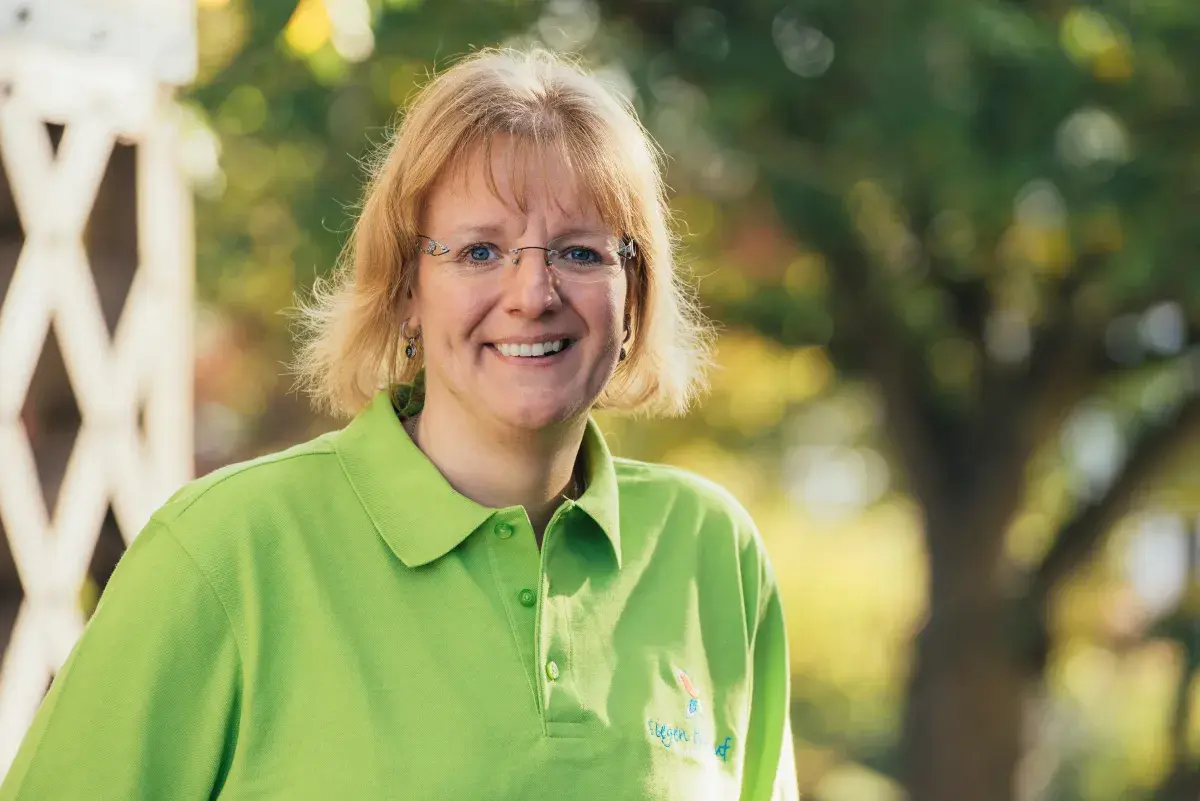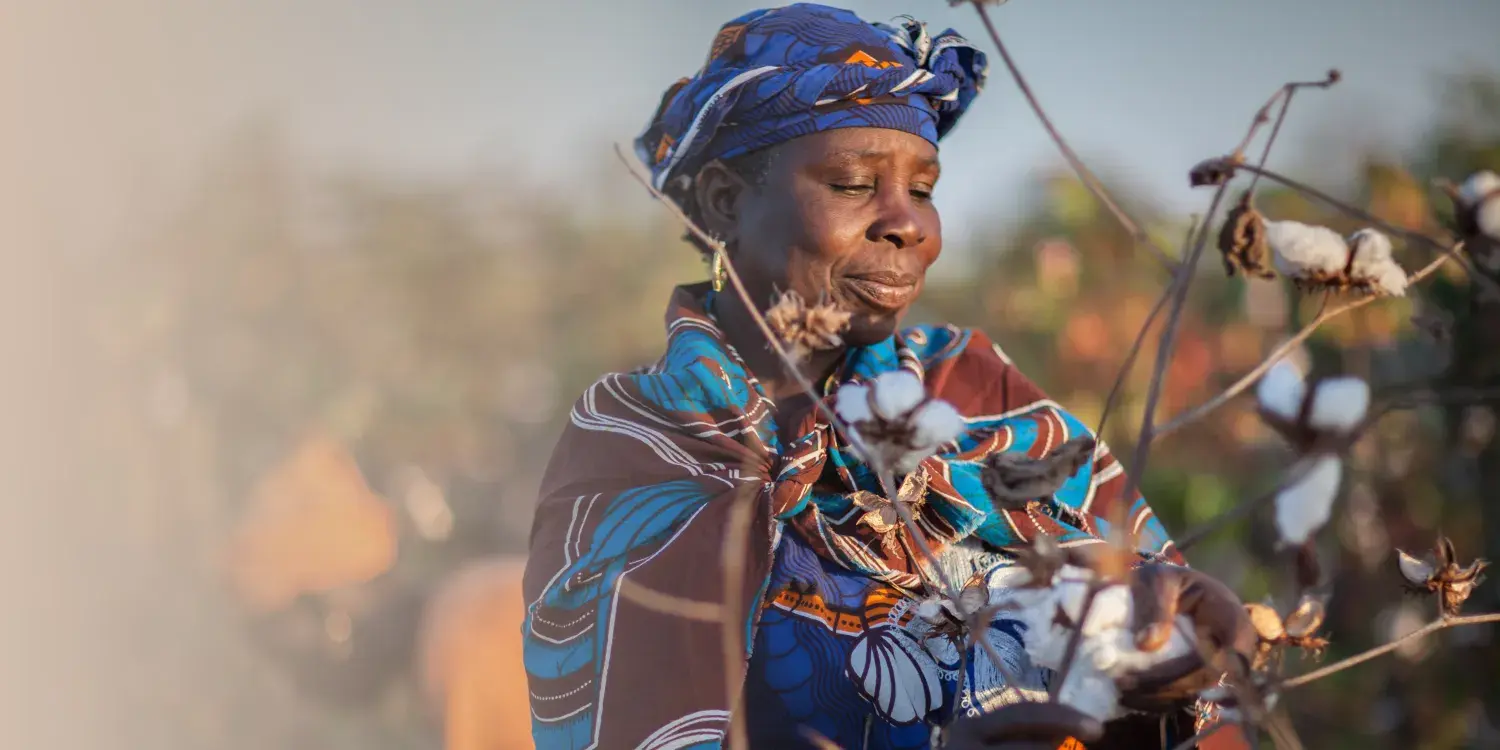The textile value-added chain is long and often not very transparent, particularly when it comes to the initial production steps. That’s why, together with Fairtrade, CWS Workwear focuses on these very first stages, namely the farmers who grow and harvest the cotton.
CWS provides them with planning certainty, as CWS has not only made a long-term commitment to increase the share of Fairtrade cotton used in its workwear but has also agreed upon fixed purchase volumes.
For their part, the smallholders must satisfy numerous requirements: compliance with environmental, social and safety standards as well as health protection measures during production. The local communities also benefit: “The Fairtrade bonus has allowed us to realise numerous environmental and educational projects,” explained Shailesh Patel from the Rapar and Dhrangadhra Farmers Producer Company in India. “Projects aimed at rainwater utilisation, reforestation, road construction and education for our children are extremely important for us and make life much easier for our cotton farmers.”
Would you like to switch to fair workwear?
In the Pro Line industry and trade collection, cotton from the Fairtrade raw materials model guarantees that all items feel wonderfully soft against the skin. It is combined with polyester from recycled PET bottles and other industrial plastic waste to ensure that all garments are suitably robust and hard-wearing.
Benefits for companies
- All the CWS garments made from Fairtrade cotton and based on the Fairtrade raw materials model feature a Fairtrade seal clearly indicating the fair origin of their material.
- By opting for this workwear, companies can demonstrate their long-term commitment.
- At the same time, you can improve your sustainability footprint and, in turn, make a positive impression on your customers.
- You are supporting cotton farmers who receive a fair minimum price for their cotton as well as a Fairtrade bonus for community projects.
- You are also positioning your company internally as a responsible employer which values providing its staff with premium equipment.
“CWS’ very visionary and strategic approach to workwear is unique. With its long-term concept of regularly launching new Fairtrade cotton collections on the market, the company is not merely responding to customer demands, but rather is shaping the future direction itself,” stated Dieter Overath, Chairman of the Board of Transfair e.V./ Fairtrade Deutschland.
One key decision criterion was that the cotton was Fairtrade-certified. We are very satisfied with the service; everything is going really smoothly.

What is Fairtrade
Good reasons for workwear made of fairly produced cotton. Farmers growing Fairtrade cotton benefit from good working conditions thanks to five principles:
1. Fair price and premiums
Farmers receive a guaranteed minimum price for their cotton. This covers the costs of sustainable cotton production. At the same time, it protects the farmers and their families from price fluctuations on the global cotton market. When the current market price is above the Fairtrade minimum price, the farmers receive the higher price. This also offers them increased financial security. Buyers of Fairtrade cotton, for example CWS, also pay the farmers a premium, which is intended for community projects.
2. Democratic organisation
Fairtrade farms generally join together to form larger producer cooperatives. These are run democratically, allowing all farmers to have a say in their affairs.
3. Protection of children
Exploitative child labour and forced labour are prohibited in Fairtrade production. Children benefit from the fair prices that the farmers receive for their cotton: where child labour was formerly essential to the survival of the family, it is now obsolete.
4. Environmental standards
Fairtrade protects the health of the cotton farmers and our planet. Hazardous chemicals and genetically modified seeds are banned. In addition, methods are employed which save water.
5. Transparent supply chain
For clothing to be Fairtrade-certified, all links in the downstream supply chain must be able to prove compliance with the ILO core labour standards. The Fairtrade seal therefore demands transparency along the entire supply chain. In addition, Fairtrade-certified clothing must not include cotton from conventional sources.
You can find out more about the Fairtrade standards for cotton on the Fairtrade Germany website.
